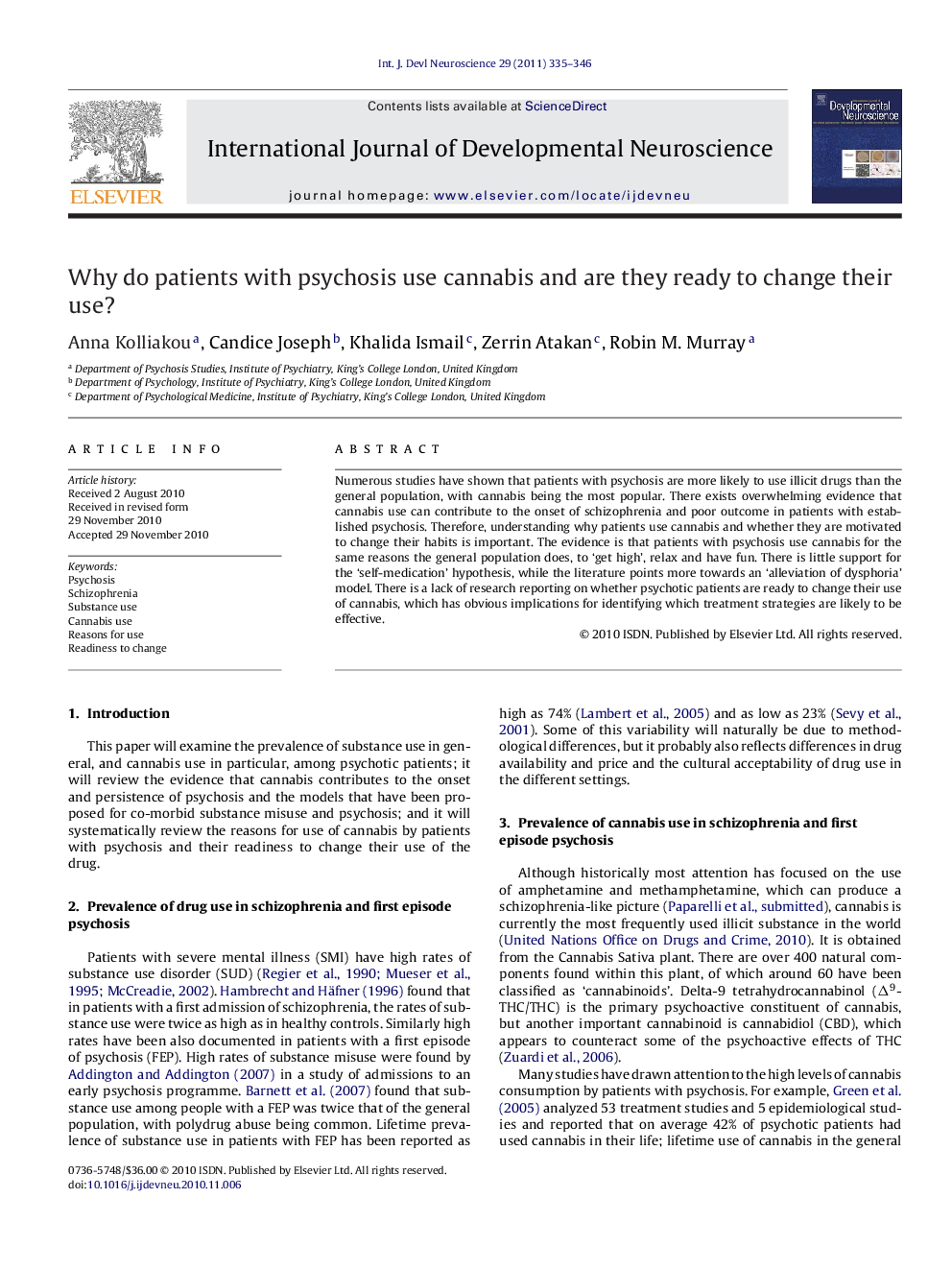| Article ID | Journal | Published Year | Pages | File Type |
|---|---|---|---|---|
| 2786630 | International Journal of Developmental Neuroscience | 2011 | 12 Pages |
Numerous studies have shown that patients with psychosis are more likely to use illicit drugs than the general population, with cannabis being the most popular. There exists overwhelming evidence that cannabis use can contribute to the onset of schizophrenia and poor outcome in patients with established psychosis. Therefore, understanding why patients use cannabis and whether they are motivated to change their habits is important. The evidence is that patients with psychosis use cannabis for the same reasons the general population does, to ‘get high’, relax and have fun. There is little support for the ‘self-medication’ hypothesis, while the literature points more towards an ‘alleviation of dysphoria’ model. There is a lack of research reporting on whether psychotic patients are ready to change their use of cannabis, which has obvious implications for identifying which treatment strategies are likely to be effective.
Research highlights▶ Patients with psychosis are more likely to report lifetime cannabis use than the general population. ▶ Cannabis use in adolescence has been consistently associated with later psychotic symptoms. ▶ Psychotic patients use cannabis to get high and relieve dysphoria and depression. ▶ Persistent cannabis use is associated with adverse effects on the course of illness. ▶ Helping patients to change their cannabis use may reduce risk of relapse.
